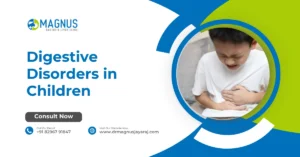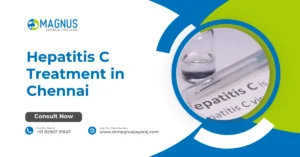Acute liver failure is a serious medical condition that requires immediate specialist care to prevent life-threatening complications. Hospitals offering Acute Liver Treatment in Chennai provide advanced diagnostics, 24/7 emergency support, and expert hepatologists to ensure timely intervention. Treatment usually includes stabilizing the patient, managing infections, correcting metabolic imbalances, and, if needed, performing emergency liver transplantation. With modern ICU facilities, experienced gastroenterology teams, and evidence-based treatment protocols, Chennai has become a trusted destination for Acute Liver Treatment in Chennai, ensuring better outcomes and faster recovery for patients.
Understanding acute liver failure its causes, diagnosis, treatment options, and symptom management can guide you in making informed decisions about your health. Chennai’s medical facilities provide state-of-the-art solutions, making it a hub for liver treatment. Alongside care quality, considering the cost of acute liver treatment in Chennai is vital for effective planning. This guide explores everything you need to know to ensure you receive the best care for acute liver failure in Chennai.
What is Acute Liver Treatment?
Acute liver treatment involves specialized medical care aimed at managing sudden and severe loss of liver function, often referred to as acute liver failure. This condition can develop rapidly within days or weeks in individuals without prior liver disease. The Best Acute Liver Treatment in Chennai focuses on stabilizing vital functions, removing toxins, and supporting liver regeneration or transplantation if necessary. With advanced diagnostic tools, intensive care facilities, and experienced hepatology teams, Chennai has become a preferred destination for managing critical liver emergencies effectively. Early diagnosis and timely intervention significantly improve survival outcomes in patients with acute liver failure.
Causes
Acute liver failure can result from several underlying factors, and identifying the root cause is vital for effective management. The Best Acute Liver Treatment in Chennai focuses on treating both the immediate condition and its triggers.
- Drug-induced liver injury: Overdose or prolonged use of medications such as acetaminophen (paracetamol) is one of the most common causes. Early detection and treatment can prevent irreversible liver damage.
- Viral hepatitis: Hepatitis A, B, and E infections can cause rapid inflammation of the liver, especially in individuals with compromised immune systems. Prompt antiviral therapy is crucial in such cases.
- Autoimmune hepatitis: The body’s immune system may mistakenly attack liver cells, leading to acute inflammation and failure. Immunosuppressive treatments form a core part of the acute liver failure treatment in Chennai.
- Toxins and alcohol: Excessive alcohol consumption and exposure to industrial toxins such as carbon tetrachloride can severely impair liver function.
- Metabolic disorders: Genetic conditions like Wilson’s disease and fatty liver disorders can trigger sudden liver deterioration, requiring specialized interventions from acute liver failure doctors in Chennai.

Symptoms
The symptoms of acute liver failure can appear suddenly and progress rapidly, requiring immediate medical attention at centers offering the Best Acute Liver Treatment in Chennai.
- Jaundice: A yellowing of the skin and eyes caused by a buildup of bilirubin due to impaired liver function.
- Abdominal pain and swelling: Discomfort or distention in the upper right side of the abdomen is a key sign of liver distress.
- Nausea and vomiting: These symptoms arise from toxin buildup that the liver can no longer process effectively.
- Confusion and disorientation: Known as hepatic encephalopathy, this occurs when toxins affect brain function. Patients may experience mood changes or even coma if untreated.
- Fatigue and weakness: Severe exhaustion results from reduced energy metabolism and nutrient imbalance.
- Easy bruising or bleeding: The liver’s inability to produce clotting factors leads to frequent bruising and internal bleeding.
Recognizing these signs early and seeking the Best Acute Liver Treatment in Chennai can be lifesaving, as delays in care often lead to complications.
Diagnosis
The diagnosis of acute liver failure is a critical process involving multiple tests to assess liver function and identify underlying causes. Hospitals providing acute liver failure treatment in Chennai employ a combination of advanced imaging and laboratory evaluations.
- Liver function tests (LFTs): These measure levels of liver enzymes (ALT, AST) and bilirubin to assess damage severity.
- Coagulation profile: Tests like INR and PT determine how well the blood clots, as the liver produces clotting factors.
- Blood tests for viral hepatitis: These help identify if viral infections are the underlying cause.
- Imaging tests: Ultrasound, CT scans, and MRI help detect liver inflammation, fatty deposits, or structural abnormalities.
- Liver biopsy: A small tissue sample may be examined to determine the extent of damage or specific disease cause.
- Toxin and drug screening: Identifies exposure to harmful substances or overdoses responsible for liver injury.
The Best Acute Liver Treatment in Chennai ensures that diagnosis is conducted swiftly, allowing for early and targeted intervention.
Treatment
Treatment strategies for acute liver failure depend on the cause, severity, and overall health of the patient. The Best Acute Liver Treatment in Chennai provides comprehensive medical and surgical options to stabilize liver function.
- Supportive care: Patients are admitted to intensive care units for close monitoring, ensuring stable oxygen levels, fluid balance, and vital organ support.
- Medication management: Antidotes like N-acetylcysteine are used for paracetamol poisoning, while antiviral or immunosuppressive drugs treat infections and autoimmune causes.
- Plasma exchange therapy: This helps remove toxins and inflammatory mediators from the blood, improving liver function temporarily.
- Nutritional therapy: Diets rich in essential amino acids and low in protein help reduce toxin buildup.
- Liver transplantation: In cases where the liver fails to recover, transplantation becomes necessary. The acute liver failure doctors in Chennai assess suitability and arrange for timely surgical intervention.
The Acute liver treatment cost in Chennai and the Cost of acute liver treatment in Chennai depend on the treatment plan, duration of ICU care, and whether a transplant is required.
Prognosis
The prognosis for acute liver failure depends on the underlying cause, patient’s age, and timeliness of treatment. Early intervention through the Best Acute Liver Treatment in Chennai significantly improves recovery outcomes.
- Early-stage management: If treated promptly, patients can experience full recovery with minimal complications, especially in cases of drug-induced liver injury.
- Severe cases: Without treatment, the condition may progress rapidly, leading to multi-organ failure or death within days.
- Post-treatment monitoring: Continuous follow-up with acute liver failure doctors in Chennai ensures prevention of recurrence and monitoring of liver regeneration.
- Transplant success rates: Patients undergoing transplantation at centers providing acute liver failure treatment in Chennai often achieve excellent long-term survival rates.
- Lifestyle modification: Avoiding alcohol, following a balanced diet, and routine health checkups are essential for maintaining liver health post-recovery.
Overall, the Best Acute Liver Treatment in Chennai combines modern technology, expert care, and personalized management plans to ensure better survival and quality of life for patients recovering from acute liver failure.
Stages
Liver failure progresses in stages:
- Stage 1: Mild symptoms like fatigue and jaundice.
- Stage 2: Worsening symptoms, confusion, and liver enlargement.
- Stage 3: Severe symptoms, including bleeding, confusion, and kidney failure.
- Stage 4: Complete liver failure requiring urgent liver transplantation.
For the Best Acute liver treatment in Chennai, each stage demands a specific approach to prevent life-threatening complications.
Complications or Effects
Acute liver failure can lead to several complications:
- Kidney Failure: The liver’s failure may affect kidney function.
- Bleeding: Due to clotting issues in the blood.
- Infections: Vulnerability to infections increases.
- Coma: Severe liver failure can lead to a coma.
Managing these complications is essential for finding the Best Acute liver treatment in Chennai.
Risk Factors
Several factors can contribute to acute liver failure, making best acute liver treatment in Chennai essential:
- Excessive alcohol consumption
- Viral infections like Hepatitis A, B, or C
- Uncontrolled diabetes and obesity
- Medication overdose or poisoning
Seeking care from a top liver transplant specialist in Chennai ensures advanced treatment options and better recovery outcomes. If you’re looking for the best liver treatment in Chennai, expert specialists offer comprehensive solutions tailored to your needs.
Prevention
Preventing acute liver failure involves:
- Avoiding Overuse of Alcohol: Excessive alcohol consumption can lead to severe liver damage and conditions like liver cirrhosis. To protect liver health, it’s important to limit alcohol intake within the recommended guidelines. For Best Acute Liver Treatment in Chennai, seeking guidance from an expert can help prevent alcohol-induced liver diseases.
- Vaccinations: Hepatitis B and C vaccines are critical in preventing viral liver infections, which can lead to chronic liver conditions. Getting vaccinated can significantly reduce the risk of developing liver-related diseases, making it an essential part of Best Liver Treatment in Chennai.
- Safe Medication Practices: Overuse of over-the-counter medications, especially acetaminophen, can cause liver toxicity. It’s essential to follow proper dosing instructions and consult a healthcare provider before taking medications, particularly for those with existing liver concerns. For expert care, consulting the Best liver transplant surgeon in Chennai is advised.
- Healthy Lifestyle: Maintaining a healthy diet and regular exercise routine is vital for liver health. Consuming a balanced diet with adequate hydration and staying physically active can support liver function and prevent liver diseases. Engaging with the Best Acute Liver Treatment in Chennai ensures a tailored approach to managing liver health.
These practices are essential in promoting liver health and preventing damage, with personalized treatment plans offered by Best Liver Treatment in Chennai experts.
Vaccine For The Liver
Hepatitis, a silent threat to our liver health, often goes unnoticed until it reaches advanced stages. The good news is that there is a powerful weapon against this stealthy adversary – the vaccine for the liver, a crucial tool in preventing hepatitis and safeguarding our liver health. In this blog post, we’ll explore the significance of hepatitis vaccination and why it’s a game-changer in the realm of public health.
Recovery After Acute Liver Treatment in Chennai
Recovery following an acute liver condition is a critical phase that goes beyond hospital discharge. It involves constant supervision, gradual healing, and lifestyle restructuring to bring liver function back to normal. The best liver treatment in Chennai ensures this phase is well-planned and patient-specific, improving outcomes and preventing long-term damage.
- Structured follow-ups: Regular check-ups are essential to monitor liver enzyme levels, bilirubin, and overall liver performance.
- Personalized nutrition: Patients are often placed on liver-friendly diets—low in fat, moderate in protein, and rich in antioxidants—to reduce stress on the liver.
- Medication review: Doctors evaluate and restrict medications that could further affect liver health, especially painkillers or antibiotics.
- Avoidance of alcohol and toxins: Complete alcohol abstinence is a must, along with avoiding herbal or over-the-counter products that burden liver function.
- Fatigue and weakness management: Patients may experience prolonged tiredness; adequate rest and hydration are key to regaining strength.
- Psychological support: Anxiety and depression post-recovery are addressed through counseling or group support, especially for younger adults.
- Liver-protective therapy: Supplements like silymarin or vitamin E may be used under supervision to enhance liver regeneration.
- Lifestyle guidance: Smoking cessation, healthy weight maintenance, and stress management form an essential part of the recovery protocol.
- Early detection of complications: Any signs of recurrence or progression to chronic liver disease are addressed swiftly to prevent deterioration.
- Tailored recovery plans: Hepatologists in Chennai design follow-up care based on the cause of liver injury—whether viral, drug-induced, or metabolic.
Best Liver Transplant Surgeon in Chennai
Dr. Magnus Jayaraj Mansard is a highly skilled liver transplant surgeon in India, specializing in advanced liver, pancreas, and biliary surgeries. With extensive experience in liver transplantation, he combines precision and care to achieve excellent outcomes for his patients. His expertise lies in both surgical and non-surgical approaches, ensuring the best options for liver disease management. Dr. Mansard is recognized for his contributions to medical research and for advancing liver transplant techniques. Patients trust his compassionate care and leading-edge treatment methods for complex liver conditions.
- Qualification: MBBS, MS – General Surgery, DNB – Surgical Gastroenterology, MRCS (UK)
- Years of Experience: 17+ Years
- Address: Magnus Gastro & Liver Clinic, Thirukkural Medical Centre, 62, Rajiv Gandhi IT Expy, Uthandi, Egattur, Tamil Nadu 603103.

Conclusion
Best Acute liver treatment in Chennai is available with advanced medical technologies and skilled professionals like Dr. Magnus Jayaraj. If you or someone you know is suffering from acute liver failure, it’s important to seek immediate treatment. liver transplant specialist in chennai are equipped to diagnose and manage this condition effectively. While the Acute liver treatment cost in Chennai can vary, understanding the treatment options, the associated costs, and the expertise of doctors will guide you in making the best decisions for your health.
Read Also: Types of Liver Transplant




